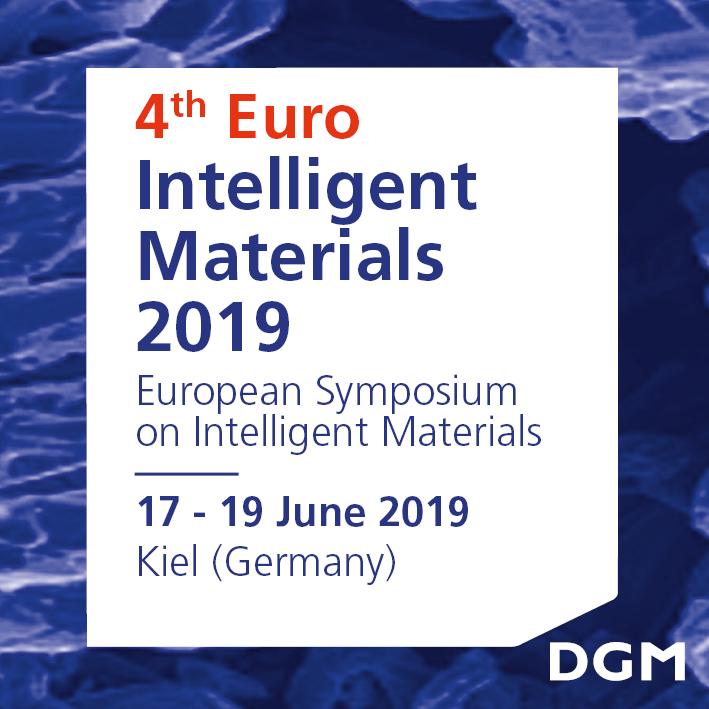4th Intelligent Materials – European Symposium on Intelligent Materials

Logo der Tagung
Intelligent materials integrate novel functionalities into materials. Examples include self-responsive materials, switchable materials and biofunctional materials, to name a few. In the biomedical context such materials are highly relevant, starting from biomagnetic sensing to brain implants.
If intelligent materials are used in devices they can often be made more energy efficient and autonomous. Also in sensor and actuator systems intelligent materials can lead to significantly increased sensitivity.
Such intelligent materials typically have complex internal structures: they can be composites of different material classes such as multiferroics or hybrid materials; they might be nanostructured or hierarchically built-up; they could be bioinspired and possess functional elements ranging from single molecules to the macroscale; they might have adaptive properties and thus become self-responsive.
All those materials and their design and development have to be accompanied by high-resolution analytical tools that are able to characterize the materials on all scales and, moreover, track and reveal their function-structure relations in situ or in operando.
In addition to invited plenary lectures, the conference encompasses oral and poster presentations.
Abstracts are solicited on the basic principles, modelling and simulation, synthesis, characterization, and applications of intelligent materials, especially of:
• smart materials (piezoelectrics, magnetostrictive materials, shape memory alloys),
• multiferroic materials and composites,
• multifunctional materials and composites,
• memristive materials and devices,
• biofunctional materials,
• bioinspired materials,
• biohybrid materials.
In particular young scientists are very welcome to actively contribute to the conference by submitting an abstract.
To submit your abstract, please use the following address: https://intelligent-materials2019.dgm.de/registration/registration/
Moreover, contributions related to the Collaborative Research Center CRC 1261 (Magnetoelectric Sensors: From Composite Materials to Biomagnetic Diagnostics), the Research Training Group RTG 2154 (Materials for Brain (M4B): Thin film functional materials for minimally invasive therapy of brain diseases) and the Research Group FOR 2093 (Memristive devices for neuronal systems) will be included.
After the successful conferences in 2013, 2015 and 2017 the 4th European Symposium on Intelligent Materials will bring together experts in the field of intelligent materials to present and discuss recent developments and detect future trends. A focus of the conference is the interdisciplinary exchange between scientists from materials science, physics, chemistry and biology.
Therefore, the European Symposium on Intelligent Materials 2019 is an excellent forum for discussions with international key researchers. It has the aim to stimulate new collaborations for developing novel intelligent material systems and characterizing their functionality, from molecular mechanisms to applications.
Chairs of the conference are Prof. Dr. Christine Selhuber-Unkel and Prof. Dr.-Ing. Eckhard Quandt, Kiel University, Germany
Abstract submission deadline: 30. November 2018
Media Contact
All latest news from the category: Event News
Newest articles

Superradiant atoms could push the boundaries of how precisely time can be measured
Superradiant atoms can help us measure time more precisely than ever. In a new study, researchers from the University of Copenhagen present a new method for measuring the time interval,…

Ion thermoelectric conversion devices for near room temperature
The electrode sheet of the thermoelectric device consists of ionic hydrogel, which is sandwiched between the electrodes to form, and the Prussian blue on the electrode undergoes a redox reaction…

Zap Energy achieves 37-million-degree temperatures in a compact device
New publication reports record electron temperatures for a small-scale, sheared-flow-stabilized Z-pinch fusion device. In the nine decades since humans first produced fusion reactions, only a few fusion technologies have demonstrated…





















